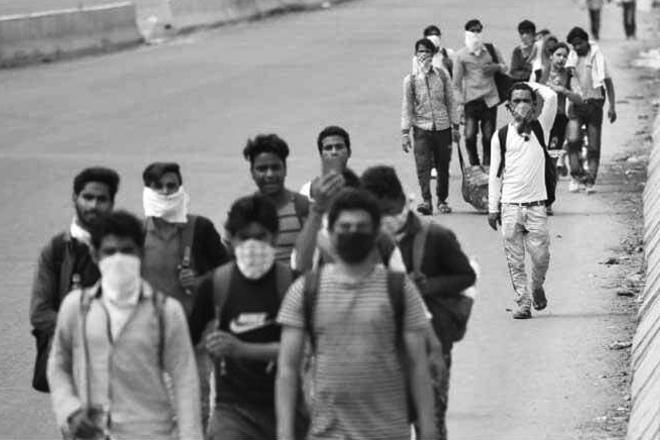Digital skilling platforms can be used to help migrant labour acquire new skills in their free time, even while they are employed.
With the onset of Covid-19, we have witnessed the mass migration of people from urban locations to their native places across the length and breadth of the country. A small percentage has managed to find jobs locally, many have started moving back to urban locations as there is no earning opportunity in their villages.
The important point to be observed is that a significant number of migrants do physical labour, living in urban centres with very poor amenities. Migrant labour is part of the unorganised sector and often subjected to disputes and conflicts related to their payments. Further, physical labour does take a toll and the segment in the age group of 30-40 years frequently start visiting villages for treatment of chronic illnesses. And it has been observed that once these men enter their 40s, they prefer to take up local labour and the cycle once again starts with the next generation of youth leaving the villages in search of work.
This unending cycle of migration, however, leaves them mostly in penury other than short intervals during which time they are able to earn reasonable sums of money mainly in the prime of their youth. Thus, the subject of migration is complex and requires a multi-pronged approach to help the migrants derive lasting benefits from their migration or their return to native places. How can digital technology mitigate the problems faced by the migrant workers?
The fundamental premise of migration is the specific skills migrants possess at the time of migrating to urban locations. Once they commence work in urban locations, migrants should be provided with training for upskilling themselves or for acquiring new skills which would extend their remunerative period and also enable them to find new jobs or livelihoods when they wish to return to their native places.
Using digital skilling platforms, they should be encouraged to acquire new skills. The government should develop skills matrix with minimum suggested compensation for each level so that migrants are motivated to upgrade themselves and employers would have to pay them the compensation they deserve.
Skills maps should be constantly updated and made known to the industry in every location as well as to the migrants so that under-employment and low wages can be curtailed. Migrants who wish to return to their native places could be supported by counselling centres which can help them identify specific opportunities for employment or for setting up small enterprises with the help of digital resources. They could be motivated to set up small digital enterprises to buy/sell urban/rural produce or artisanal products and thereby extend their income earning capabilities and even provided financial support.
We often hear about how talented labour is no longer available to carry on with quality workmanship. Well-designed digital knowledge repositories could be built with user friendly digital tools to capture their experiences and valuable tacit knowledge and migrants could be motivated to contribute to these repositories with monetary rewards even after they go back to their native places.
Thus digital technology should be viewed not merely as a tool for communication or entertainment by this segment of people but something that can help in the digital mainstreaming of migrants.
Originally appeared in Financial Express


